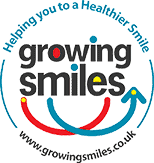Birth to 6 Months of Age
* We are working on this page. Please call back or if you have a query contact us info@growingsmiles.co.uk
Summary
- Inside the Mouth – Tooth and jaw development. Tongue tie. Developmental anomalies e.g. cleft lip and palate. Saliva, dribbling and teething – how to recognise and identify when it’s not ‘teeth’ related.
- Lifestyle, Health and Wellbeing – General health and development. Medications and oral health. Reflux. Dummy/Digit Sucking; Teething. Stress and mental health.
- Oral Hygiene – Maintaining parents oral care routine with a new baby and new routines. Baby oral hygiene – when to start, what to use and how to clean baby’s gums and new teeth.
- Diet and Nutrition – Parents diet and nutrition for a healthy life. Baby diet and nutrition – Breast/Bottle Feeding for health.
- Professional Dental Care – Parents continuing dental care. Baby’s first dental visit – Dental Check by One. Finding a dental home for family dental care and regular attendance for healthy family smiles.
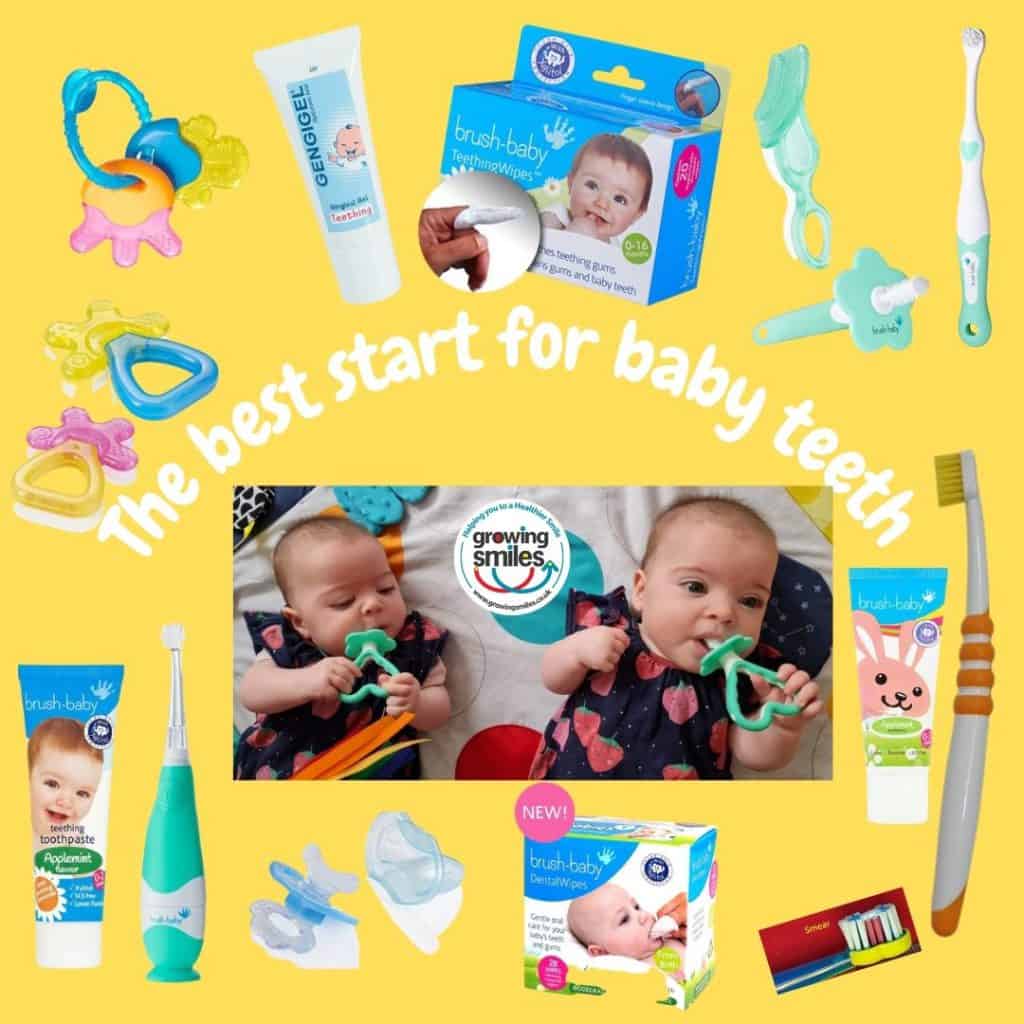
Inside the Mouth
Tooth Development
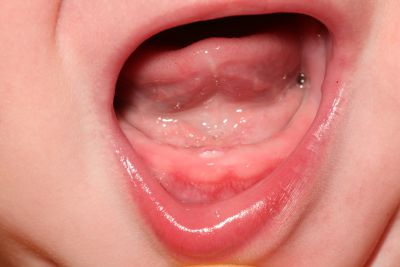
Baby teeth are also called primary or deciduous teeth.
Baby’s aren’t usually born with teeth visible in their mouth, but at birth your baby’s first teeth are well developed in their jaw under their gums and the first permanent teeth are already starting to develop. The first tooth usually appears around 6 months of age but this can vary. You may have heard these teeth called baby teeth, milk teeth, primary teeth or even deciduous teeth! Baby teeth are important. They help your baby to eat, speak and smile. Baby’s first tooth is usually the lower incisor which appears in the middle at the front of the mouth. Between this and around 2 ½-3 years your little one will get all 20 of their baby (primary or deciduous) teeth.
Lifestyle, Health and Wellbeing
What Affects Tooth Development
Trauma, premature birth and how it affects tooth development.
Pregnancy affects almost all body systems and that includes tooth development. During the early stages of pregnancy the embryo is highly susceptible – poor health of Mum, nutrition, infections, drug intake all may affect the health of the developing baby. All organ systems are formed during first trimester and by 12 weeks, foetus moves and swallows.
The first step of baby tooth development – tooth buds, develop between 5 and 6th week of pregnancy with the formation of the hard tooth tissues occurring around the 4-5th month in pregnancy. Lips form around the 4-7th week of baby’s development and the palate forms between 8-12th week.
Cleft Lip/Palate
Cleft lip is apparent by 8th week, cleft palate by 12th week of pregnancy.
Prematurity and Oral Health

Teething
Your baby may well make you aware of the upcoming arrival of their first tooth long before its arrives!
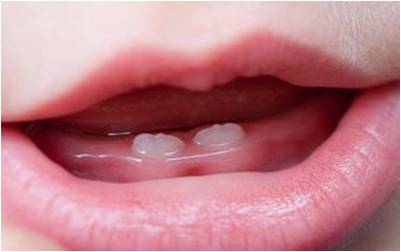
Teething is a natural process and while some children take it in their stride, others appear restless, sore and miserable. For those of us who have experienced a little one teething, we know it can appear to result in fussiness, increased crying and sleepless nights.
Some signs that your baby may be teething:
- Chewing on fingers, hands, anything they can put in their mouth
- Increased dribbling
- One cheek is flushed
- The gum is red where the tooth is coming through
- They are more fretful than usual
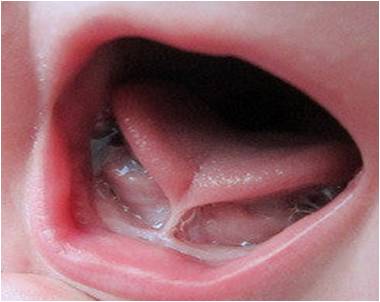
Some babies are born with the condition tongue-tie, (ankyloglossia). The fold of skin under the tongue that
connects to the tongue to the bottom of the mouth is shorter than usual, and this restricts the movement of the tongue. The condition may be mild, or it can be severe, with the tongue joined to the bottom of the mouth.
Tongue-tie can cause problems with breastfeeding. If the baby isn’t feeding efficiently, they may not gain weight at the normal rate.
The NHS website has more information about tongue tie.
Feeding
It is recommended that babies should be exclusively breastfed for around the first 6 months. We know that isn’t always possible to breastfeed. Whatever way your baby is fed it its important that they get the best nutrition to thrive.
Breastfeeding
Breast fed babies have less tooth decay and breastfeeding provides the best nutrition for a baby’s overall health. The available evidence indicates that breastfeeding up to 12 months of age is related to a reduced risk of tooth decay compared with infant formula. The evidence concerning breastfeeding beyond the first year is less clear as much of the research doesn’t take into account other factors that impact the risk of tooth decay e.g. weaning foods and drinks, tooth brushing, use of fluoride etc.
Aim to breastfeed exclusively for around the first 6 months then continue breastfeeding while introducing solids from around 6 months.
From 6 months babies should be encouraged to drink from a free-flow cup (rather than one with a valve which requires a child to suck).
Bottle Feeding
Only breastmilk, infant formula or cooled boiled water should be given in a bottle.
Babies should be introduced to drinking from a free-flow cup from the age of 6 months.
Feeding from a bottle should be discouraged from the age of 1 year.
DO NOT add sugar, honey or any other sugar-containing products or drinks to bottles.
From 6 months babies should be encouraged to drink from a free-flow cup (rather than one with a valve which requires a child to suck) and aim to discourage bottle feeding from the age of one year.
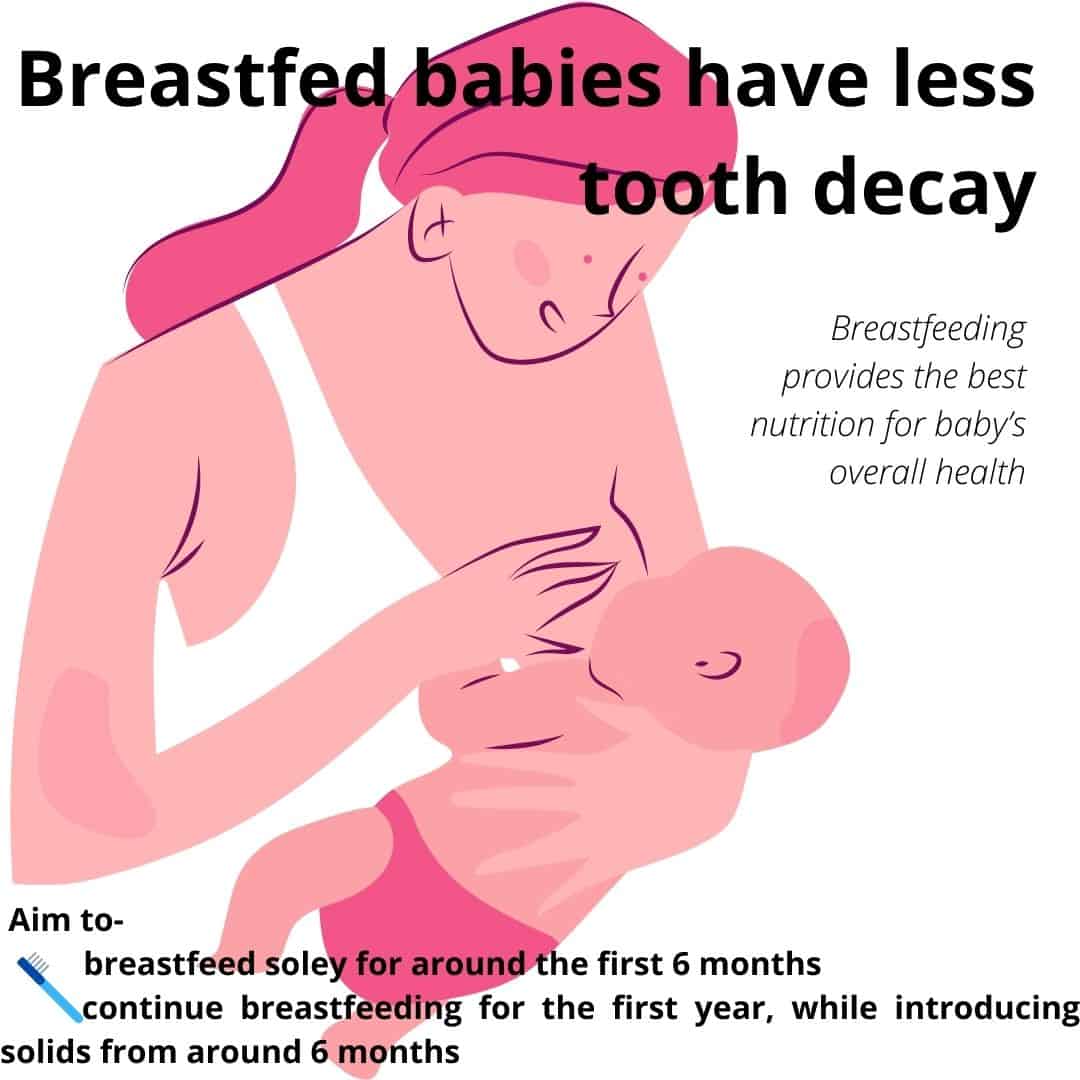
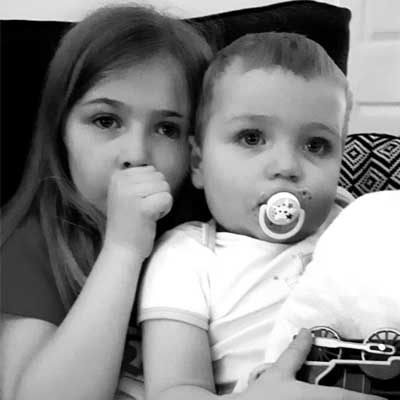
Dummy, Thumb and Finger Sucking
Thumb sucking finger sucking or digit sucking is a natural source of comfort for children; it can help babies and young children feel secure and happy. Some babies suck their thumb or finger right from birth or even before birth!
There are pros and cons of sucking dummies, fingers and thumbs. Issues can arise depending on what they suck and for how long. Learn more here.
Learn more about thumb/finger sucking and breaking the habit here.
Have you got to the stage that the dummy needs to go? Learn more here.
Going, going? Gone! A fond farewell to the dummy? Why not give it a new home and relocate your dummy (s) to the Growing Smiles Dummy Tree.
Oral Hygiene
What to use, how and when
Once teeth begin to appear, you may worry when to brush if they fall asleep at the breast. Try to brush teeth as close to bedtime as possible rather than wake a child to brush their teeth.
You may start to clean your baby’s gums before any teeth appear to help create a healthy environment in the mouth
Cleaning baby’s mouth – Before the first tooth appears you can clean their gums using a soft clean cloth or xylitol wipes. Xylitol textured wipes can be used for gentle cleaning of gums and soft tissues to promote a healthy environment by inhibiting the growth of decay causing bacteria. Research shows that these bacteria can passed from parents to their new born children, creating a potentially damaging environment in their child’s mouth. (If parents have had tooth decay in the previous two years they may have high numbers of decay causing bacteria in their mouth). Regular use of xylitol by mothers has been demonstrated to significantly reduce this bacterial transmission, resulting in fewer cavities for the child. Using xylitol wipes before the first tooth erupts helps develop a healthy environment and is the first stage in preventing tooth decay. See our range of xylitol sugar free products here Cleaning gums gets baby used to you cleaning for them and prepares them for mouth care as part of their daily personal hygiene routine. As soon as the first tooth appears toothbrushing should start. GS Mum’s tip – keep wipes in the fridge – the cool cloth helps to sooth teething baby.
Parents mouth care – looking after yourself
Tips for carers – grandparents, childcare and others involved.
Diet and Nutrition
Professional Dental Care
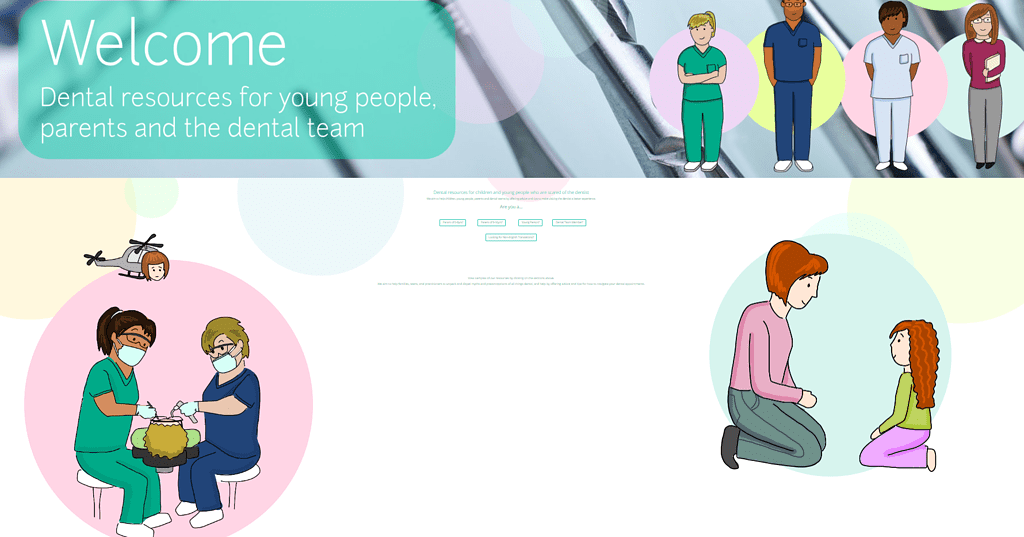
Worried about going to the dentist? We recommend visiting LLTTF which has advise and tips to make visiting the dentist a better experience.
